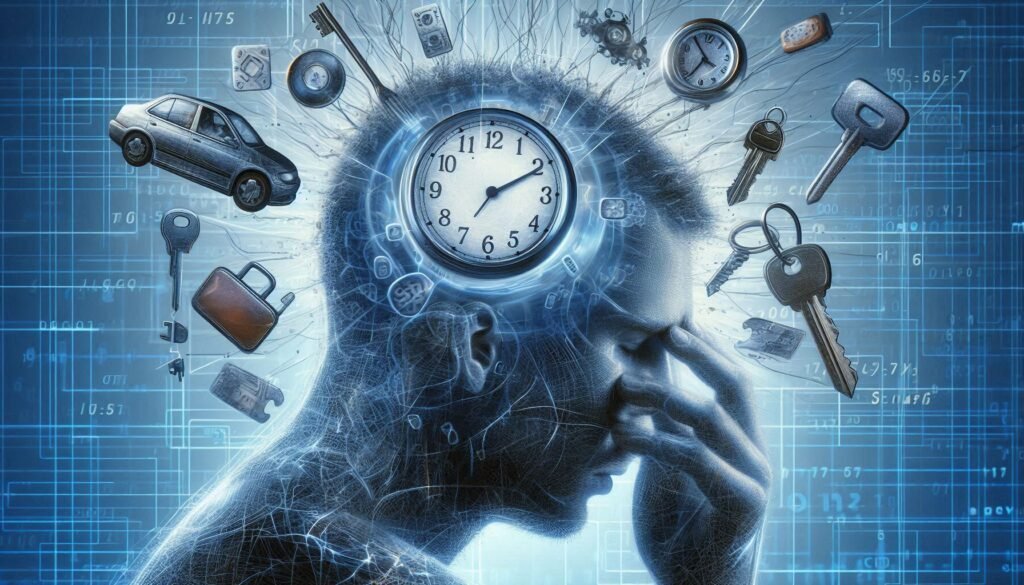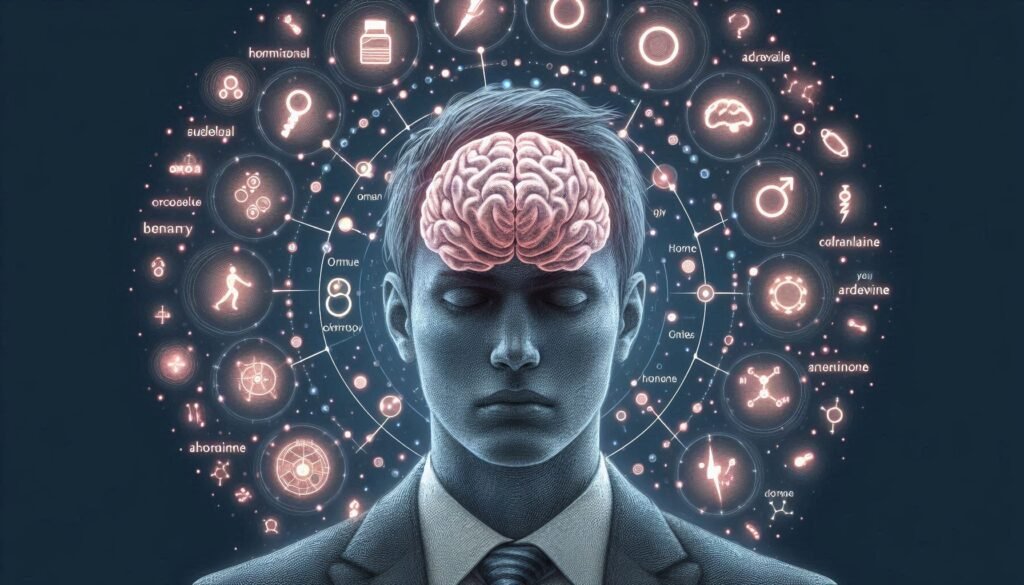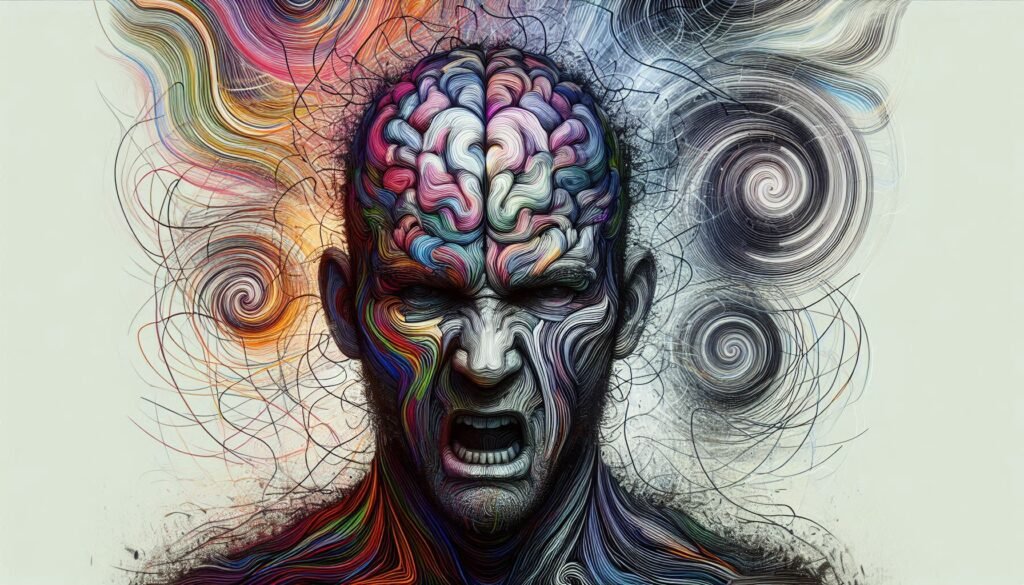Concussions are often viewed as a temporary setback, but the impact they have on cognitive functions can be profound and long-lasting. Among these effects, short-term memory issues after concussion frequently emerge as a troubling symptom that many individuals face. Whether you’re an athlete recovering from a head injury or someone who has experienced trauma in daily life, understanding how concussions affect memory is crucial for effective rehabilitation.
Short-term memory serves as our mental sticky note—helping us retain essential information just long enough to complete tasks or engage in conversations. When this function is disrupted by a concussion, it can lead to confusion and frustration. The journey toward recovery may seem daunting, but knowing what to expect can empower patients and caregivers alike.
In this article, we’ll delve into the complexities of short-term memory deficits post-injury—from neurobiological mechanisms at play to practical strategies for everyday life. By shedding light on both assessment techniques and rehabilitation methods, we aim to equip you with valuable insights for navigating the challenges that come with these cognitive hurdles. Let’s explore how you can reclaim your mental clarity after experiencing a concussion.

Understanding Short-Term Memory Function and Vulnerability to Concussion
Short-term memory is the brain’s ability to hold and manipulate information for brief periods, typically ranging from seconds to minutes. This cognitive function plays a vital role in daily activities such as remembering names or following instructions. It acts like a mental workspace where we process new insights before deciding what to retain long-term.
The vulnerability of short-term memory becomes particularly evident after a concussion. When the brain suffers trauma, its communication pathways can become disrupted. This disruption affects how information is encoded and retrieved, leading to noticeable deficits in memory performance.
Concussions can lead to various symptoms that impact cognitive functions, including attention and processing speed. These factors are crucial for forming coherent memories. The more severe the injury, the greater the likelihood of experiencing significant short-term memory issues.
Understanding this relationship helps clarify why individuals recovering from concussions often struggle with everyday tasks that require quick recall or decision-making abilities. Addressing these vulnerabilities early on is essential for effective recovery strategies.
Common Manifestations of Short-Term Memory Deficits Post-Injury
Short-term memory deficits after a concussion can manifest in several ways. One common sign is forgetfulness, particularly with recent events or conversations. Individuals may find themselves struggling to recall what they just did or said, leading to frustration and confusion.
Another manifestation includes difficulty following conversations or instructions. People might zone out during discussions, missing key points. This can affect social interactions and even job performance, as critical information slips through the cracks.
Moreover, individuals may experience challenges with learning new information. Tasks that require memorization—like studying for exams—become daunting hurdles instead of manageable responsibilities.
It’s not uncommon for those affected to feel overwhelmed by multitasking demands. Simple tasks become complicated when short-term memory issues interfere with their ability to keep track of multiple activities at once. These symptoms collectively highlight the impact of head trauma on cognitive functioning and daily life adjustments needed after such injuries.
Neurobiological Mechanisms of Memory Impairment After Head Trauma
Head trauma can disrupt the intricate processes of memory formation and retrieval. The neurobiological mechanisms behind this impairment often involve damage to key brain structures, such as the hippocampus and prefrontal cortex. These areas are crucial for encoding new information and consolidating memories.
When a concussion occurs, there can be an influx of neurotransmitters like glutamate. This overactivity may lead to excitotoxicity, causing neuronal injury or death. As neurons are damaged, communication pathways become impaired, further complicating memory functions.
Additionally, inflammation following a concussion plays a significant role in memory deficits. Cytokines released during the inflammatory response can affect synaptic plasticity—the ability of synapses to strengthen or weaken over time based on activity levels—essential for learning and memory.
Alterations in blood flow due to changes in vascular function post-injury may impact oxygen delivery to critical brain regions involved in processing memories, compounding short-term memory issues after concussion.
Impact of Short-Term Memory Issues on Daily Life and Functioning
Short-term memory issues after concussion can significantly disrupt daily life. Individuals often struggle to remember recent conversations, appointments, or tasks. This forgetfulness can lead to frustration and anxiety, making social interactions challenging.
In the workplace, these deficits may hinder job performance. Employees might miss deadlines or make mistakes due to an inability to retain information quickly. This not only affects productivity but also impacts relationships with colleagues and supervisors.
At home, managing family responsibilities becomes more difficult. Forgetting important events like birthdays or grocery lists adds stress for both individuals and their loved ones. The constant worry about memory lapses can create a sense of helplessness.
Daily routines are also affected as individuals attempt compensatory strategies that may be inefficient. Relying on notes or reminders takes time and effort, further complicating simple tasks such as cooking meals or running errands. Short-term memory issues alter one’s quality of life dramatically.
Neuropsychological Assessment of Post-Concussion Memory Function
Neuropsychological assessment plays a crucial role in evaluating short-term memory issues after concussion. This process involves standardized tests designed to gauge various cognitive functions, particularly those related to memory. Clinicians often look for specific deficits that may arise from head trauma.
During the evaluation, patients may be asked to recall lists of words or follow multi-step instructions. These tasks help identify areas where memory performance is lacking compared to normative data. The goal is not just diagnosis but understanding how these deficits impact daily activities.
Beyond testing, clinicians gather comprehensive histories and conduct interviews to paint a clearer picture of the individual’s functioning before and after the injury. This holistic approach allows for tailored interventions that address unique challenges faced by each patient.
A thorough neuropsychological assessment can guide effective rehabilitation strategies and support recovery efforts aimed at restoring cognitive function while mitigating long-term effects on quality of life.
Cognitive Rehabilitation Techniques for Improving Short-Term Memory
Cognitive rehabilitation techniques play a critical role in addressing short-term memory issues after concussion. These strategies are designed to help individuals regain their cognitive functions through targeted exercises and activities. By focusing on specific areas of memory, patients can gradually rebuild their mental capacity.
One effective technique is the use of mnemonic devices. These tools aid in creating associations that enhance recall ability. For instance, using acronyms or visual imagery can make information more memorable and easier to retrieve when needed.
Another beneficial approach involves structured practice sessions. Repeating tasks—such as recalling lists or following sequences—can strengthen neural connections associated with short-term memory. This repetitive training helps reinforce learning over time.
Mindfulness exercises also contribute positively to cognitive recovery. Techniques like meditation improve focus and attention, which are vital for processing new information effectively. Enhanced concentration leads to better retention of memories formed during daily activities.
Compensatory Strategies and Memory Aids for Concussion Patients
Compensatory strategies can be a lifeline for individuals experiencing short-term memory issues after concussion. These techniques help bypass cognitive deficits by utilizing external tools and methods. For example, using planners or digital calendars can assist in managing daily tasks and appointments effectively.
Another helpful approach is to establish consistent routines. Predictable patterns aid the brain in information retention, making it easier to remember key activities throughout the day. This strategy helps reduce confusion and enhances overall functioning.
Memory aids like sticky notes are also beneficial. Placing reminders around living spaces serves as visual cues that prompt recall when needed. Simple yet effective, these reminders keep important information front of mind without overwhelming cognitive resources.
Additionally, group discussions or teaching others what you’ve learned reinforces memory retention through social interaction. Engaging with peers fosters a supportive environment while strengthening understanding of new concepts or tasks impacted by memory deficits.
The Role of Sleep and Stress in Short-Term Memory Recovery
Sleep plays a crucial role in memory consolidation, especially after experiencing short-term memory issues following a concussion. During sleep, the brain processes and organizes information acquired during waking hours. This process helps strengthen memories and improves overall cognitive function.
Stress can significantly hinder this recovery process. It activates the body’s fight-or-flight response, releasing cortisol—often termed the “stress hormone.” Elevated cortisol levels have been shown to impair cognitive functions, including memory retention and recall abilities.
Patients recovering from concussions should prioritize quality sleep as part of their rehabilitation plan. Establishing a regular sleep schedule and creating a calming bedtime routine can promote better rest and enhance memory recovery.
Moreover, managing stress is equally vital for improving short-term memory post-injury. Techniques such as mindfulness meditation, deep breathing exercises, or gentle yoga can help reduce stress levels while fostering an environment conducive to healing the mind.
Pharmacological Interventions for Memory Enhancement
Pharmacological interventions for short-term memory issues after concussion have gained attention in recent years. Various medications aim to enhance cognitive function and support recovery. These can include stimulants, antidepressants, and nootropics specifically designed to improve memory.
Stimulants like amphetamines may boost attention and concentration, which are often compromised following a concussion. They work by increasing dopamine levels in the brain, leading to improved focus on tasks requiring short-term memory retention.
Antidepressants such as selective serotonin reuptake inhibitors (SSRIs) might also play a role. While primarily used for mood stabilization, they can help alleviate anxiety and depression that often accompany memory deficits post-injury. A more stable emotional state can facilitate better cognitive performance.
Nootropics or “smart drugs” target neurochemical pathways involved in learning and memory formation. Some studies suggest they may enhance synaptic plasticity, potentially benefiting individuals struggling with short-term recall after head trauma. However, further research is needed to establish their efficacy fully.
Long-Term Prognosis and Ongoing Management of Memory Deficits
Addressing short-term memory issues after concussion requires a comprehensive approach. The long-term prognosis varies significantly among individuals. Many recover well over time, while others may experience persistent memory deficits.
Ongoing management is crucial for those facing prolonged challenges. Regular neuropsychological assessments can help track progress and adjust rehabilitation strategies as needed. Support systems, including family and friends, play an essential role in recovery.
Individuals are encouraged to engage with healthcare professionals specializing in cognitive rehabilitation to develop tailored interventions that target specific memory weaknesses. Strategies may include continuous cognitive training exercises and mindfulness practices aimed at enhancing focus.
It’s also vital to monitor lifestyle factors such as sleep quality and stress levels, which directly impact cognitive function. By adopting healthy habits and utilizing appropriate tools or therapies, patients can improve their outcomes.
With the right support and resources, many individuals find they can manage their symptoms effectively over time. Understanding the nature of these challenges fosters resilience in both patients and caregivers alike while paving the way toward meaningful recovery from short-term memory issues after concussion.


